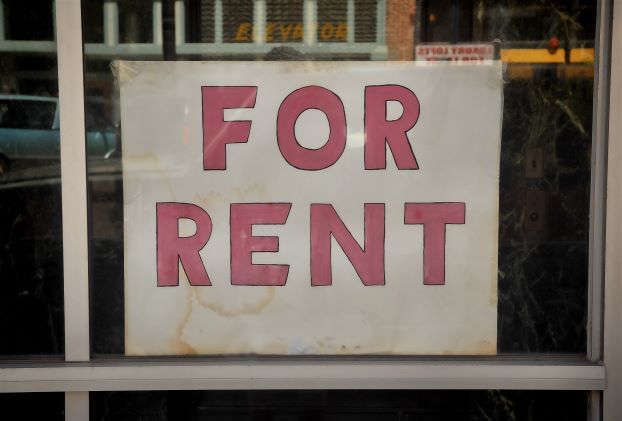Santa Monica Renters may have more help on the way with several new proposals adopted by the city council and one on the way to the city’s voters.
On Tuesday evening, the Santa Monica City Council heard several proposals put together by the Consumer Protection Division of the City Attorney’s office following the council’s previous direction that staff return with proposals to strengthen renter rights and protections.
The five recommendations for local ordinances presented on Tuesday were:
- Permanent relocation assistance for excessive rent increases
- Would be triggered if a tenant chooses to move within 120 days of notice that their rent will be increased by CPI + 5 percent or 10 percent (whichever is less)
- Would now apply to units not covered by rent control or the Tenant Protection Act
- Other reasons for the permanent relocation rights to be enforced include
- If the tenant chooses to leave after a temporary relocation of six months or more
- A determination that the tenant was forced to leave because of harassment or illegal lockout
- A determination that the unit is not habitable and cannot be made so
- Tenant chooses to leave a unit that they found out is not a permitted unit and is unlikely to be permitted
- Expansion of the Tenant Buyout Code to non-rent controlled units
- Moves the Buyout Code from the Tenant Harassment Code into its portion of the Municipal Code
- Buyout agreements would now have to be for an amount at least equal to the permanent relocation fee amount
- A landlord’s failure to file an agreement may be raised as a defense to eviction
- New disclosure requirements to better inform tenants of the new buyout rules, including that the tenant can consider too many offers to buy them out in a set amount of time a form of harassment
- Protections from evictions based on bad faith excessive rent increases
- A tenant can now fight an eviction if the landlord imposes an excessive rent increase intended to induce the tenant to vacate through fraud, intimidation, or coercion
- Bad faith can include excessive increases:
- Within six months of an unsuccessful attempt to evict for cause
- Within six months of lawful complaints to the landlord about habitability, harassment, discrimination, harassment by a neighbor
- If the landlord imposes excessive increase during a stated emergency
- New protections added to the Tenant Harassment Code
- Adding, as harassment when done in bad faith:
- Self-help eviction (e.g. changing locks)
- Refusal to accept rent
- Excessive or unlawful rent increase
- Retaliation
- Adding examples of unlawful intimidation or coercion
- Buyout offers within six months after a tenant has said they aren’t interested
- Refusal to replace lawfully occupied tenant who has left the unit with a subtenant
- Adding, as harassment when done in bad faith:
- Adds housing status as a protected classification
- Would prohibit discrimination in renting based on an applicant’s ‘housing status’
- Refusing to rent, denying access to common areas, evicting, or otherwise withholding a unit based on an applicant’s housing status
- Statements made by the landlord that indicate a preference or limitation concerning housing status
- Defining Housing Status
- Currently or formerly experiencing homelessness
- Currently or formerly living in transitional, temporary, or shelter housing
- Lacking a residential rental housing history
- Allowing applicants without a rental history and landlord references another way to prove they will be a reliable tenant
- Unlawful “refusal to accept” a housing voucher
- Including refusing to make repairs required by the Housing Authority after a Housing Quality Inspection unless the landlord can demonstrate economic infeasibility
- Would prohibit discrimination in renting based on an applicant’s ‘housing status’
There were also proposed changes that would need to be Charter Amendments, and thus approved by the voters.
One would be to place an initiative on the ballot to prevent evictions for small rental debts. Specifically, preventing evictions if the tenant owes the landlord less than 150 percent of the fair market rent for an equivalent size unit. This measure has been adopted by the City and County of Los Angeles.
The other would limit evictions for tenants performing unpermitted work to their units. This would protect tenants if, for example, they had the landlord’s permission to do the work, but the landlord refused the seek the proper permits with the city. It would also protect tenants whose units were cited for a violation, but for which the landlord fails to inform the tenant of the citation.
Before the presentation by staff, several speakers came to voice support for the measures.
Resident Natalya Zernitskaya, who finished fourth in the 2022 general election for city council, spoke of being displaced last fall when a pipe in the unit above her own burst, causing severe leaking. Displaced for three months, Zernitskaya said she was grateful to live in Santa Monica, adding, “All of the departments and individuals that I’ve had to call on for guidance and assistance have helped me personally feel like we not only have strong tenant protections on paper but that they’re also enforced.”
But Zernitskaya also said that despite her positive experience thanks to Santa Monica’s commitment to renters, “There are still a lot of folks that slip through the cracks” and that there is more work to do.
Michael Soloff, Co-Chair of Santa Monicans for Renter’s Rights (SMRR), told the council, “Recently, the city and county of L.A. have moved beyond where we are as a city in terms of those [renter] protections, and we really appreciate that council directed staff to come back with an ordinance to catch us up with the city and county of L.A.”
Both Soloff and Zernitskaya encouraged the council to place direction concerning the portions of the ordinance that will have to go to the ballot in the hands of the Rent Control Board. Soloff said, “That’s the group that should be drafting any language and bring forward any recommendations to you of what to put on the ballot.”
Planning Commissioner Ellis Raskin agreed, saying of the Rent Control Board, “To pass charter amendments without their input and without their expertise would be a disservice to our community.”
During a question period, Mayor Phil Brock centered on the eviction threshold of being 150 percent behind on one’s rent (essentially a little more than one month’s rent) as possibly being a burden on smaller “mom and pop” landlords. Vice Mayor Lana Negrete also had questions on the matter, but strangely started her remarks by saying she doubted the eviction crisis was a major cause of homelessness. Councilmember Oscar De La Torre seemed to come to realize what most have known for years, which is that buyout amounts don’t go very far for tenants who take them once they leave their unit.
To counter Brock’s concerns that eviction proceedings are also a great cost to landlords in lost rent, Councilmember Gleam Davis said, “The eviction of someone from their unit is going to be in almost every instance worse than the harm suffered by the landlord. Somebody getting put out on the street is a very bad thing.” She said she didn’t want to seem unsympathetic to landlords, “The purpose of this is to protect tenancies so that people don’t end up on the street.”
Councilmember Caroline Torosis brought up the equity deficit in evictions, pointing out that the eviction crisis has disproportionately hit Black and Latino residents. “I think it’s really incumbent on us to try to stem the tide with every tool that we have, and this is just one of them.” She asked for more guidance from subject matter experts on how to protect renters with small rental debts.
Brock and De La Torre tried to re-center the discussion as one about “mom and pop” landlords and railed against the proliferation of well-heeled corporate landlords. They said little about the proposed tenant protections themselves, aside from De La Torre floating an idea about some sort of tenant loan program, which may be in the works by the city manager.
Councilmember Jesse Zwick challenged the discussion surrounding the sympathetic-sounding “mom and pop” landlords versus corporate landlords. “I’ve had really deadbeat mom-and-pop landlords who have refused to do a single repair for me for multiple years in the place that I’ve stayed in,” he said. “I’ve had corporate landlords that were very responsive to things that have broken in my house. There’s no evidence that one is better than the other. You can look this up. There’s also no evidence that one charges more than the other, or that one is greedier than the other.”
Following Zwick’s comments, the council seemed ready to move on and passed the motion to approve all measures and request that the Rent Control Board assist in the development of a charter amendment, 7-0.
Stay informed. Sign up for The Westside Voice Newsletter
By clicking submit, you agree to share your email address with Westside Voice. We do not sell or share your information with anyone.








